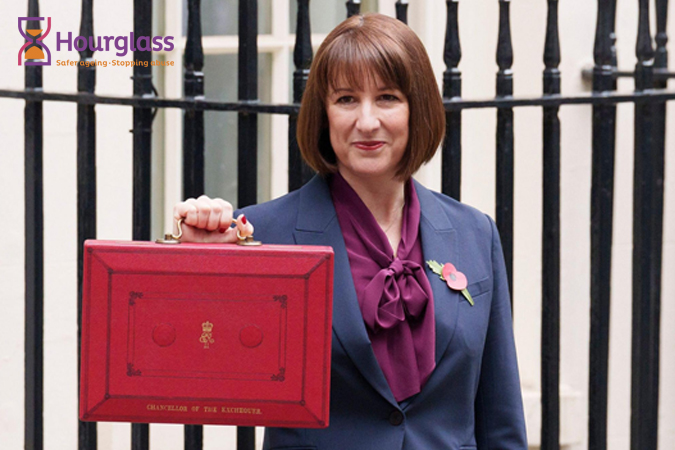
Today’s Budget places older people in a more precarious position at a time when economic insecurity is already driving rising levels of harm, exploitation and neglect.
Although Hourglass welcomes increases to the State Pension and reductions in energy bills, today’s Budget places older people in a more precarious position at a time when economic insecurity is already driving rising levels of harm, exploitation and neglect – including domestic abuse and other forms of violence against women and girls (VAWG). Freezing personal tax allowances until 2028, combined with increases to tax on dividends, property and savings income, will reduce the real-terms resources available to many older households, particularly those relying on modest investment income or pensions to stay afloat.
The introduction of National Insurance Contributions on salary-sacrificed pension contributions will weaken long-term retirement saving, but the bigger immediate concern for our sector is the freeze to employer NIC thresholds. This is not a tax on older people but it is a tax on employers.
For charities like Hourglass, already facing rising demand and increased case complexity, higher employer costs mean greater pressure on staffing budgets and service capacity. The same is true for care providers, refuges, and adult safeguarding teams across the UK who are often the first line of defence for older victim-survivors of all forms of abuse.
A Budget containing record-high tax burdens, reduced capital allowances, and new levies and surcharges must be assessed through both an ageing and a gendered lens. Too many older people are asset-rich but income-poor; measures such as the council tax surcharge on £2m+ properties could capture those with low cashflow and no capacity to absorb higher annual costs, particularly when many are already cutting back on essentials.
Crucially, despite welfare spending set to increase by £4.7 billion in 2026–27 and £9.3 billion by 2029–30, there is still no clear strategic commitment in this Budget to address the link between poverty, VAWG and the abuse of older people. The Government has committed to halving violence against women and girls in a decade as part of its ‘Safer Streets’ mission, but watchdogs and experts have repeatedly highlighted the gap between that ambition and current investment in frontline and specialist services, including ‘by and for’ services for marginalised groups and older victim-survivors. Our research and the insights shared during our Safer Ageing Summit poverty workshop earlier this month show that economic strain directly increases vulnerability to exploitation, coercion, and domestic and economic abuse within families, care relationships and communities.
“The ongoing delay to the Government’s homelessness strategy, alongside the still-unpublished VAWG strategy, means this Budget was never equipped to address one of the most critical drivers of abuse: poverty leading to housing insecurity. We know that victim-survivors who leave an abusive partner face sharply increased risks of homelessness, with around a third of homeless women reporting previous domestic abuse. Without these strategies in place, the Budget cannot fully account for the interconnected realities of abuse, poverty and homelessness. These factors consistently shape vulnerability, limit options for escape, and deepen the risks faced by older people.”
We therefore urge the Government to ensure that older people – and older victims and survivors of abuse in particular – are explicitly factored into upcoming welfare allocations, tax administration reforms and compliance measures, including the design of any new funding streams linked to its VAWG mission. Without doing so, this Budget risks widening inequalities, deepening isolation, and storing up far greater costs in health, justice and social care as abuse goes unchecked.
Hourglass stands ready to work with Ministers, Parliament and partners across the VAWG, domestic abuse, health and care sectors to ensure that future fiscal decisions promote safer ageing and protect the growing number of older people at risk of domestic abuse, economic abuse and other forms of VAWG in later life.
If you or anyone you know is affected by abuse call our free 24/7 confidential Helpline
0808 808 8141
Our helpline is entirely confidential and free to call from a landline or mobile, and the number will not appear on your phone bill.
 Shop Now
Shop Now